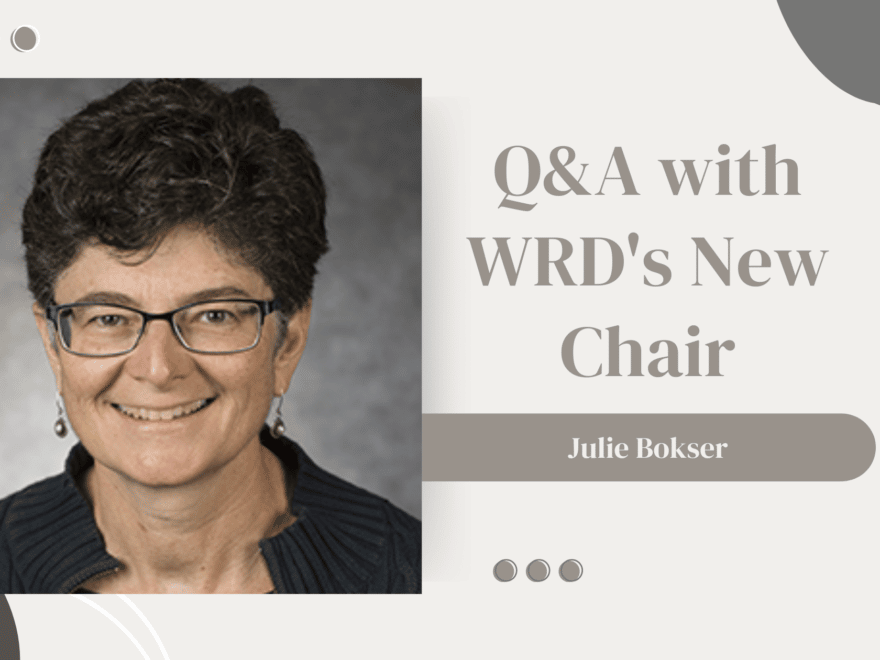The WRD department has a new chair. Professor Julie Bokser has been part of the program since its inception in 2007 when the department went its separate ways from the English department. Even prior to that she has called DePaul her academic home since the fall of 2000.
We wanted to take some time to chat with Prof. Bokser about her hopes for this new position, her time in the WRD program, and how it differs from her scholarly pursuits.
Why don’t we just start with who is Julie Bokser in relation to the WRD program?
I’ve been here since the inception of the department. Seeing it grow and seeing us get the major and minor, and continue our grad program–all that fun stuff has been gratifying!
What has that journey looked like? I know you spend a lot of time with feminist rhetoric.
My area of scholarship focuses mostly on feminist rhetorical scholarship. So I’m interested in the history of women in rhetoric and the history of rhetoric in general, particularly the way in which gender issues relate to the history of rhetoric, and the gendered acquisition and use of rhetorical skills over time. In my scholarship I dig into the library and do archival work–I really love doing that.
I’ve also held several different administrative roles. I was the writing center director for three years, shortly after I arrived at DePaul. Back then we had a different structure for the Writing Center. Then I was the first-year writing director for six years here in our department, from 2012 to 2018. And now I’m taking on the chair role.
What does it mean to be a chair of a department?
One of the things that became very clear almost immediately was, in a lot of ways, how much of being chair is making sure the operational stuff works within the university. So–hiring people, processing them through payroll, and doing all the little bureaucratic systems that DePaul has in order to make the university run. It’s interesting to understand, in a lot more detail, how the university works, and where WRD fits in there.
Although the grad program is small, our tenure-line faculty is nine people, which is not tiny but not gigantic, and we currently have 8 term faculty members (we’re hiring someone new this year) and about 55 to 60 adjuncts. That, in some ways, makes us one of the bigger departments in LAS [Liberal Arts and Social Sciences.]
Are there any decisions you want to make that will change the program in any way for folks in the next couple of years?
Well, I don’t think that’s going to happen independently on my own but I’m hoping to shape some of that. One thing I’m looking forward to is really building up the major. I think we have a really strong major already, and it can be even stronger. We have a new core series of four classes that undergrads need to take. Making that go smoothly and make sense to undergrads as they either transition to the new core or keep the old one is one of my current top priorities.
We currently offer an array of courses that help students get the best background knowledge and access to experiences so they can go out and get writing-oriented jobs or possibly apply to grad school–so they can make their way successfully in the world. Continuing this and improving upon it further is another clear priority.
Given that you’ve been here since the beginning of WRD, how does it feel to be the director now? Does it feel surreal at all?
It’s pretty cool!. I’m really happy to be where I am at this point. I actually love doing administrative roles. Before I ever came back for my Ph.D. I worked in public relations. I worked on a team with a graphic designer and other writers. And that was an incredibly positive experience in terms of having productive and creative dynamics among coworkers.
Every time I come back into an administrative role, I’m reminded of how I love doing this kind of work because, unlike the scholarship that I do, this is collaborative. In my scholarship, I go into a library and isolate myself looking at archives. That’s what I’ve been doing most recently…But now as chair, we’re all part of a team. You’re talking to and you’re working with other people every day and you’re all working towards the same goals together. I love doing that!
